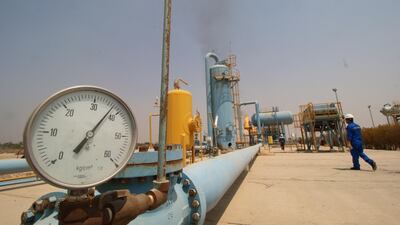S&P Global Ratings kept Saudi Arabia's credit ratings unchanged on Saturday as the kingdom moves to consolidate public finances and maintain government liquid assets.
However, the agency said that economic improvements in the country continued to revolve around oil revenues.
The ratings agency affirmed the country’s A-/A-2 foreign and local currency sovereign ratings, with expectations that the external and government balance sheets will remain strong through 2020.
“The stable outlook is based on our expectation that the Saudi authorities will take steps to consolidate public finances and maintain government liquid assets close to 100 per cent of GDP over the next two years,” S&P said.
______________
Read more:
Oil prices hit highest level since July 2015 on re-balancing optimism
Kuwait’s high cash reserves offset low oil prices, S&P says
______________
The kingdom is projected to have flat real economic growth and only pick up slowly once oil production cuts and fiscal consolidation decrease domestic demand this year. The non-oil deficit remains at about 23 per cent of GDP over the first half of the year, the same as 2016, indicating the source of the budget improvement in 2017 so far as coming through oil revenues “rather than any diversification, revenue sources or expenditure cuts”, said S&P.
Oil prices inched up to just below US$60 a barrel last month, hitting a two-year high.
While the agency did not factor in Saudi Arabia’s diversification plan under the National Transformation Programme (NTP), it did highlight the ambitious moves from the government.
“We view the government’s aim of achieving a balanced budget by 2020 as challenging when at the same time, the government strives to take measures to support the private sector and provide jobs for the 40 per cent of 15-24 year olds who are unemployed,” S&P said. “To some extent, these could be conflicting aims.”
The firm acknowledges that the programme could result in accelerated economic growth and an overall rebalancing of the economy, though S&P said that it has not factored in any specific effects from the NTP into its forecasts.

